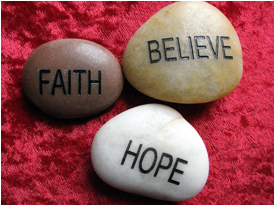 Stories are the beliefs that guide our lives. They help us to find our way in the world and give us hope and inspiration to move forward. The power of stories also can affect us in negative ways; stories that are half-truths hold us back and keep us from getting all we can from everything we can.
Stories are the beliefs that guide our lives. They help us to find our way in the world and give us hope and inspiration to move forward. The power of stories also can affect us in negative ways; stories that are half-truths hold us back and keep us from getting all we can from everything we can.
Stories need to be examined, so we stop reliving the things that have happened to us that were not kind.
This is a way to manage our stress and keep ourselves living in the present. Baby, let's talk about ways to manage your stress and keep you present.
How do you know that you are living in the projects if it where you always lived? I can remember the concrete playground with the stone bench that only a few people could sit on at the same time. I remember that the wall enclosing the playground had a large tree that one of the older kids in the projects was able to place a rope around one of the branches, so we could jump off of the wall and swing.
There was a moving van company across the street, and we would jump on the tops of the vans late at night to have what we thought at the time was fun. Sometimes we would miss the other van in our jump and get hurt. It did not stop us from coming back up to jump. The moving company was very upset with us about this behavior but that did not stop us. The boys in the projects would jump from van to van more than the girls. But the girls were fearless and tried. Everything we tried, we mastered.
 There was a farmer that lived on the opposite side of the wall that enclosed the other side of the projects. His farm was enclosed with a wired fence that we could see through. He always looked at us with disdain and that made us hate him. We would tease him by throwing things over the fence into the garden. Also, it was not unusual for us to get into his garden and steal the vegetables and fruit, especially in the times when we were hungry, which was most of the time.
There was a farmer that lived on the opposite side of the wall that enclosed the other side of the projects. His farm was enclosed with a wired fence that we could see through. He always looked at us with disdain and that made us hate him. We would tease him by throwing things over the fence into the garden. Also, it was not unusual for us to get into his garden and steal the vegetables and fruit, especially in the times when we were hungry, which was most of the time.
The projects were mostly African American families with a few poor white folks. At times, we forgot that they were white. We played with them and interacted with them as if they were black. Sometimes, they even thought that they were black. Because we had some many things in common, skin color seemed less important than the things that made us the same. Others would remind us that we were different from them, yet we would forget.
The projects seemed to be organized by daily ritual. On Friday nights, we could expect that the guys that loved to sing would perform for us on that stone bench hour after hour. They would let most of us sing with them, except those that they had determined singing was not one of their talents. We were excited to have this musical talent living among us. We awaited the "concert." Sometimes, we would dance and laugh and chase each other around in excitement awaiting this fabulous music event. On Saturday night, most of the parents would gather in the local bar walking distance from the projects, to drink and sometimes fight. This would give the children, teens, and young adults the opportunity to do many things without adult supervision.
There was one family named the Stevens. They had more than seven children and lived in a  three-bedroom apartment. Mrs. Stevens always was cooking since she had some many mouths to feed. On Saturday night, when she knew most of our parents were numbing themselves she would offer food to the children in the community. It felt like hundreds of us would pour into her very small apartment and get the small portion of spaghetti that she would offer. We all called her Mom because she was the community Mother. She would make sweet water with lemons and sugar better than anyone around. It was always a treat. Mom Stevens would always look after the younger kids on Saturday nights. She would take them into her apartment and spread a blanket on the floor and tell them to go to sleep. She would hum songs and tell them stories that made them laugh and cry. They would crawl all over her with affection, I can remember her laughter it was a pleasant sound—one that we longed for. God bless you Mother Stevens for the gift of love that you showed us. May your spirit of community live within each of our hearts.
three-bedroom apartment. Mrs. Stevens always was cooking since she had some many mouths to feed. On Saturday night, when she knew most of our parents were numbing themselves she would offer food to the children in the community. It felt like hundreds of us would pour into her very small apartment and get the small portion of spaghetti that she would offer. We all called her Mom because she was the community Mother. She would make sweet water with lemons and sugar better than anyone around. It was always a treat. Mom Stevens would always look after the younger kids on Saturday nights. She would take them into her apartment and spread a blanket on the floor and tell them to go to sleep. She would hum songs and tell them stories that made them laugh and cry. They would crawl all over her with affection, I can remember her laughter it was a pleasant sound—one that we longed for. God bless you Mother Stevens for the gift of love that you showed us. May your spirit of community live within each of our hearts.
Sunday was a day for church and rest. Some of the parents that had been out drinking were sleep, the children were in church, and the projects was quiet. The afternoon was filled with laughter, joy, and music blasting from the record players coming out of different apartments. Sometimes, the same song would play over and over until the record turned white. Some of us were hanging cloths on the line, yet others were playing ball in the concrete playground. If we were lucky, in the later afternoon the group of brothers would come to the bench and sing. It was amazing how the record players would automatically stop the music, so that their voices could be heard. Their voices filled our hearts with joy and hope. They quieted the demons that were fighting within us and filled us with a joyful noise.
Monday was a day of walking to school, like most days. Since our family was poor, we had a limited budget, so the food selections were limited. My mother expected that we set the table, and each night we would pray prior to eating. No matter what was on the plate, we would eat it. I did not realize until later that she wanted us to be full. I would sit at that table for hours sometimes under the mandate that I could not get up until my plate was clean. Oh, how I wished for a dog or even a cat or just something that could eat those dreaded lima beans. I would gather them in my hand and smash them, attempting to make them as small as I could and then put them into my pocket. It was the only method I had for survival against those beans at our dinner table.
There was light post outside of your house, and the rule in our family was that we needed to pay attention to the light, because it was our indication when we needed to come home. When it became fully bright it was time to be in the house. After dinner, there was time to play outside. I had a friend Claudia who lived next door. We would take the Sears catalog and cut out the toys. She and I would play with the paper toys as if they were real. I loved my time with Claudia. She had a great imagination, and time would seem to melt away when I was in her company. We always had to play on her porch, because her mother did not let her out of her sight. Although we would slip away from time to time.
Tuesday was about the same; although, Claudia’s mother worked late. So after school, Claudia and I could go the wall and swing on the rope. We swung on that rope for hours—sometimes until our hands burned. We had the loftily task of climbing the wall, waiting in line and swinging for about a minute or less. What a thrill it was to swing on that rope! Sometimes at night, I would dream of that rope. I would see myself swinging freely for hours, not having to climb or wait my turn. That rope was hope and inspiration. It gave us all a sense of freedom. It was the most popular activity at the projects.
Wednesdays was the night that my dad worked late, so my mother was less nervous and anxious. My father was abusive to her, so this night she would not have to anticipate his arrival, since we all would be sleep. We could rest easier as well, knowing that he would come home and go right to sleep. My brothers and I loved Wednesdays.
Thursday was a happy day, because we knew that we had one more day before the brothers would to sing to us, the special audience. I remember many of us being hungry at the end of week. It was easy to tell when things were slim, because the kids would gather outside of Mother Stevens’s house. She would sometimes offer us something. But many times she did not have enough for her own. She would bake bread that could be smelled for miles. Those were great days in the projects.
One of the older teens had this idea one evening. They thought that the white family had food in their house. They came up with this scheme to break into their house and steal the food. This scheme was discussed with many of us. Others thought that we should raid the farmer instead, even though the farmer
would come after us with a shot gun. He never pulled the trigger, but no one wanted to the first one that he tried it on.
 The brothers plan to break in was solidified. I was at home with my window open waiting to see what happened. I felt scared. I also thought, what made them think that these folks had food? They do not pass out food to you just because you’re white. We knew that white folks had a special place in the world, yet we did not have the intelligence to understand why. Maybe I was wrong. Could they have a great source of food that they were not sharing? I guess we would find out.
The brothers plan to break in was solidified. I was at home with my window open waiting to see what happened. I felt scared. I also thought, what made them think that these folks had food? They do not pass out food to you just because you’re white. We knew that white folks had a special place in the world, yet we did not have the intelligence to understand why. Maybe I was wrong. Could they have a great source of food that they were not sharing? I guess we would find out.
The projects were silent in anticipation of the event. Two of the guys broke in while the mother was in the bed sleep. I guess she heard them rambling through the kitchen, because she started to scream. The two them ran out of the house empty handed. I guess when you are poor, it doesn’t matter if you're white. They told us that the kitchen was completely empty. This taught us a great lesson. We seemed to be friendlier to the white family, knowing that they were hungry, too. She never did call the police; although, the white children in the projects would make up stories about the incident, which included police, FBI, helicopters, and a million dollar ransom. I guess we all can dream.
The parents in the projects had a love-hate relationship with each other. They were dependent on each other in so many ways. They would share babysitting, cups of sugar, bags of beans, flour, one potato, and rides to the grocery store, the doctor, the wash house, and work. This dependence resulted in one minute you could go into someone’s house, sleep over and share food, and the next minute they were not talking to each other. Most of the time, they would make up and be friends again, but for the kids it was hard keeping it straight. Sometimes it was good to not know who was off limits.
The struggles that our parents were experiencing called for creative intervention. Most mothers did some type of domestic work while the fathers drove trucks, were janitors, or worked in heavy labor jobs. They had a lot on them, and most of us knew that they were doing the best they could under pressure. We loved them for all the sacrifices they made for us. We also knew our survival was dependent upon following their instructions, which most of time we did.
The project was where I grew up, not knowing that it was a place that no one wanted to live.